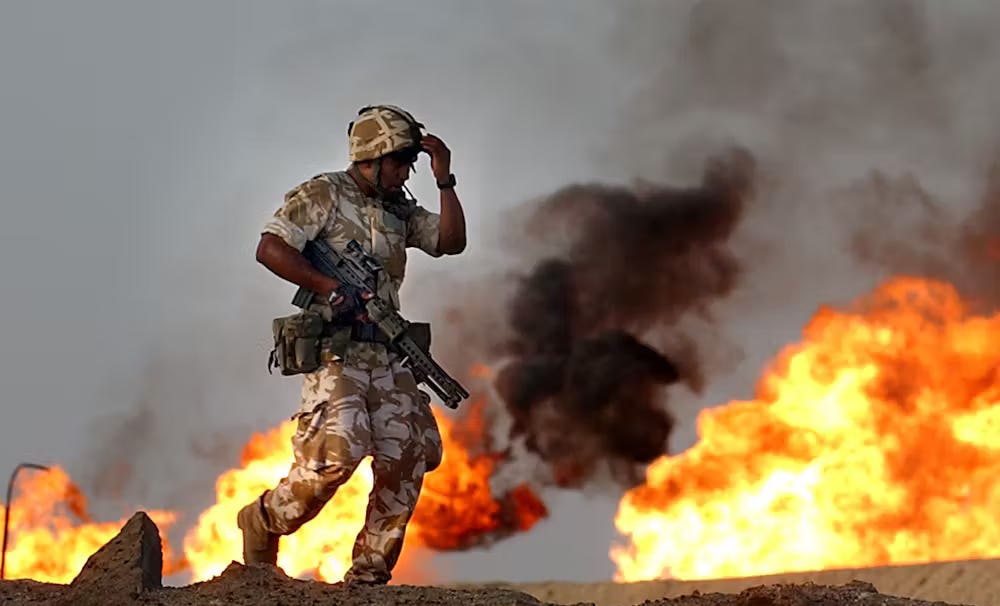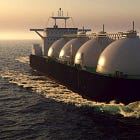Rentier Reckoning: Iraq’s Fragile Economy Amid a Region on the Brink
With oil generating over 91% of federal revenues, Iraq faces mounting economic and political risks amid regional instability (Iran vs Israel) and a shifting global energy landscape.
On 7 June, Iraq’s Ministry of Finance disclosed that over 91% of federal revenues in 2024 derived from oil, with total revenues surpassing 140 trillion dinars. This acute dependency underscores a perilous reliance that intertwines economic vulnerability with political dysfunction. Compounding this are the reported Central Bank of Iraq’s dollar transaction ban on five banks earlier this year and the Trump administration’s revocation of a seven-year sanctions waiver permitting Baghdad to import Iranian electricity. These pressures, intensified by escalating geopolitical tensions, notably the Iran-Israel conflict, expose Iraq’s regime fragility within a volatile global energy landscape.
Oil-Based Economy
Iraq’s status as a rentier economy, coupled with its history of sanctions and conflict, has left it highly susceptible to volatility and fluctuations in oil prices. While it may benefit temporarily from elevated oil prices driven by supply disruptions—particularly given Iran’s proximity and influence within Iraq’s political sphere—as a key OPEC producer, Iraq remains vulnerable. The Israel–Iran conflict, for instance, risks disrupting Iraq’s oil exports through the Persian Gulf, where Iranian military posturing could threaten key shipping lanes. Moreover, Iraq’s oil infrastructure, already suffering from chronic underinvestment, faces growing risks. A prolonged conflict could depress global demand or lead to sanctions spillovers, squeezing Iraq’s oil revenues and widening fiscal deficits, as witnessed during the 2020 price crash.
Another major challenge facing the Iraqi economy is the persistent struggle to diversify beyond hydrocarbons. Despite repeated rhetorical commitments from successive governments, efforts to develop non-oil sectors such as agriculture, manufacturing, and tourism have largely stalled. These sectors remain hindered by chronic underfunding, widespread corruption, and crumbling infrastructure. The state’s continued reliance on oil rents sustains a distributive political system in which elites compete over budget allocations, rather than investing in sustainable, productive growth.
This rentier model is further entrenched by sectarian power-sharing arrangements and undermines both transparency and long-term strategic planning, leaving Iraq ill-equipped to navigate the global shift away from fossil fuels. As major economies accelerate the transition to renewable energy and electric vehicles, long-term projections point to increased oil price volatility and potential demand decline, posing a serious threat to Iraq’s fiscal stability.
The Political Cost
Iraq’s dependence on oil sustains a patronage-based political system that favours short-term populist spending over structural reform. While high oil prices in 2025 may delay fiscal pressures, the lack of revenue diversification and entrenched corruption leaves the country vulnerable to external shocks. The Iran–Israel conflict heightens this risk. Iran’s influence over Iraqi militias and politics threatens to draw Baghdad into a proxy role, diverting resources from development and deepening internal divisions. Public frustration over unemployment and poor services could escalate into unrest, further straining Iraq’s fragile social contract.
Unlike regional peers such as Saudi Arabia and the UAE, which use oil wealth to drive diversification, Iraq lags due to insecurity and opaque regulations that deter investment. Continued instability could disrupt oil partnerships and raise borrowing costs. In sum, without urgent reforms to diversify the economy, improve governance, and invest in human capital, Iraq remains trapped in a high-risk model that undermines its long-term stability and growth. Geopolitical risks threaten to destablise the country’s fragile systems.




